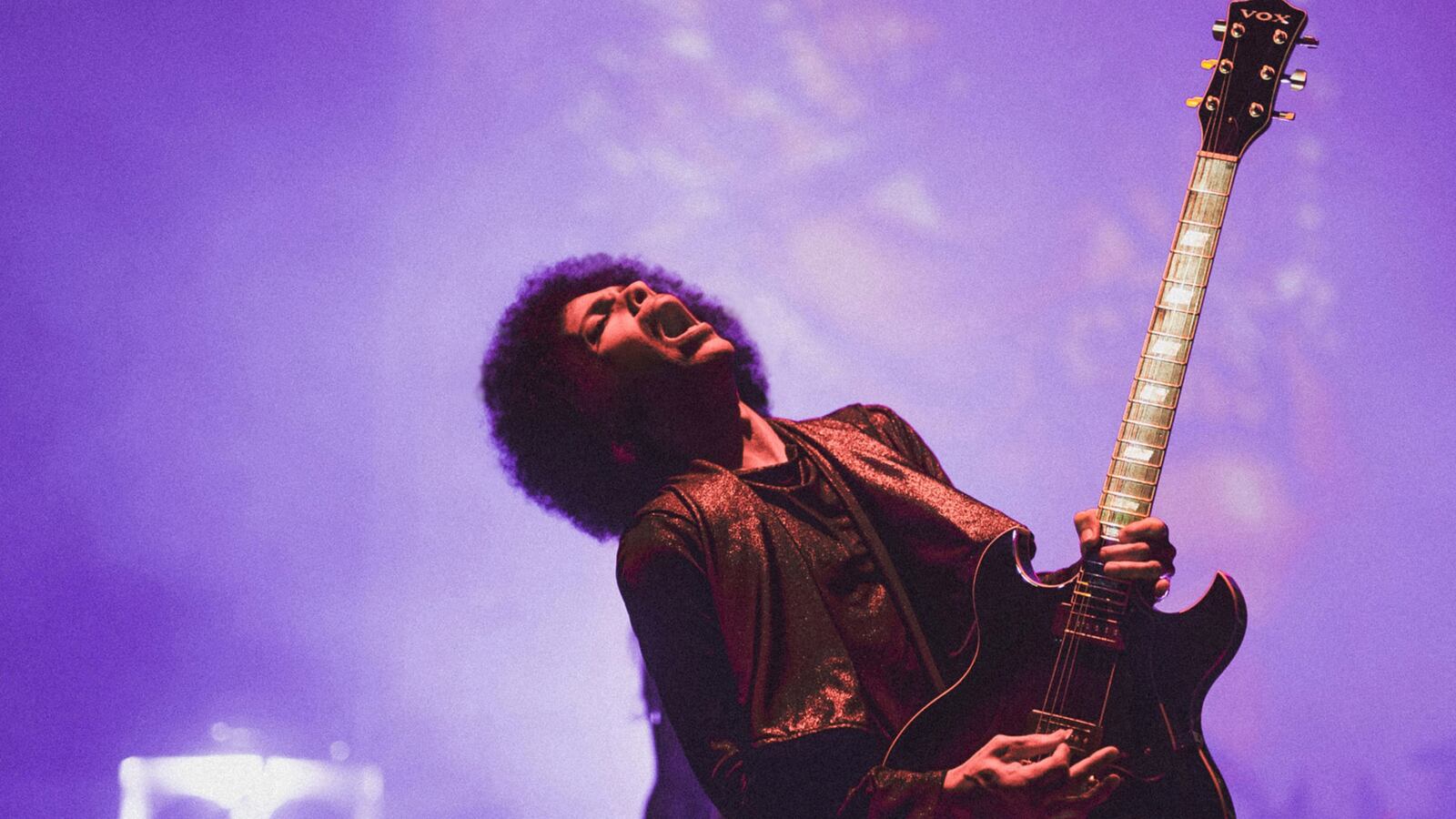In the intervening year since Prince passed away, a lot about the world has changed—from Donald Trump’s election to the United Kingdom’s earth-shattering Brexit move—but one thing remains certain: the loss of The Purple One has left a gaping hole in the heart of music.
Trying to cope with that loss, acclaimed author and Prince mega-fan Ben Greenman set out to write a book that is part memoir of a generation, part biography of the late musician—exploring the importance of a single man on how the world sees race, ideology, and identity.
The book, Dig If You Will the Picture: Funk, Sex, God and Genius in the Music of Prince, was previously excerpted here at The Daily Beast. And in a brief conversation on the one-year anniversary of Prince’s death, Greenman elaborated a bit on where the late legend’s legacy is headed.
Has anything changed about his legacy a year after he’s gone?
Time is a strange thing, because his death seems as though it happened both a century ago and yesterday. Has his legacy changed? Probably not, in some ways—or rather, it changed immediately following his death, swollen by grief, and then settled back down. What we're left with now is the question of how posthumous music will shift our sense of his achievement. Each time there's a new release, either an unauthorized one like Deliverance this week or authorized ones like the projected Purple Rain reissue, there will be a little site of inflammation in his legacy. That album or that period will get increased attention for a while. In the end, the larger questions about his legacy aren't questions that I felt I can answer until much later. How will his music and his style fit into the America of 2030 or 2040? Those are great questions, but slow questions.

You’ve mentioned how much you previously avoided talking with other Prince obsessives, but his death changed that?
His death didn't really change my relationship to the rest of the Prince community, except insofar as I reminded myself how much I appreciate all the different ways that people love his work. Some people are outspoken on online forums, and proud of it. Others are more private. Others still are just discovering his work, and they come at it from the perspective as a student. I'm still (despite having written a book about it) pretty private about my fandom, and my relationship to Prince's music.
What about his death inspired you to write a book that is also something of a cathartic release of your own private feelings on Prince?
I have spent the last five years working with musicians on their memoirs, from Questlove to George Clinton to Brian Wilson, and I have spent lots of time thinking about the link between emotional memories and artwork. In this case, I didn't want to write a straightforward biography (some already exist, and they are good ones) or a straightforward critical assessment (same). I wanted to also build in the experience of being a Prince fan, of experiencing his songs, albums, and shows over the years, partly in the hopes that readers will find points of contact. Every Prince fan has their experience with and their memories of his work. These are mine, but maybe it will harmonize profitably with the experiences and memories of others.
Did the election and the tensions therein at all shape how you approached writing about Prince?
Yes, definitely. Prince died in April, and I started writing, and pretty soon I was in the thick of both the book and the election season. The election depressed me for many reasons, and not only in the outcome. The tone was so strident, and the camps so separate, and the way that facts were marshaled was so punitive, and the effect of technology on media (both in how it gave people social-media platforms and in the way it kept the news cycle churning) was so toxic. The whole situation frequently felt out of control. So I wrote between those two clouds, the cloud of Prince's death and the cloud of the election, and the work was, sometimes, a ray of light.
Have you visited Paisley Park since his death?
No. I have such strange, mixed feelings about Paisley Park. I have some friends who are Elvis obsessives, and some of them love visiting Graceland, and some of them won't go near it. I am in the latter camp. I think it's a strange thing to do anyway, to make a pilgrimage to a site associated with a deceased artist, and Paisley Park as a site is still too raw: it's the place where he died, and it now has an urn with his ashes that is a tiny replica of the place. Again, this is all chalked up to personal choice, and I'm by no means maligning people who trek to Chanhassen, but the way I visit this particular artist is by revisiting the work.
What do you make of the endless fascination with how he died and who is to blame? Is it the crass public obsession with celebrity or is there also an element of the mystery that constantly surrounds Prince?
There's definitely an element of Prince's mystery woven into his death, as it was woven into his life. It's also a legitimate and timely legal matter: how people get opioids and who over-prescribes and how people (not just celebrities) game the system are all issues that have real relevance in today's America. Even so, the part of it that verges on death-cult is uncomfortable. Perhaps it's understandable: we had it with Cobain, and with Elvis, and with Hendrix, and with Jim Morrison. It's one of the ways that our society deals with this kind of trauma. We obsessively scrutinize it.
Which current artists do you see as carrying onward his legacy of shattering identities and ideologies?
I think Prince was a hard artist to imitate, but easy to be inspired by, in the sense that there aren't too many other music stars in any genre who are quintuple threats: write songs, play songs, sing songs, produce songs, perform songs. Plenty of people do some of those things well, but almost no one does all of them well. So I think his influence is more felt, as you say, in the idea of conceptual bravery, going after ideas hard without much concern for which conventions you shatter. Recently, Beyonce has done a great job of moving past the earlier, chart-topping version of herself into a much more personal space that helps her investigate questions that are both personal (identity, loyalty, jealousy) and political (social justice, feminism, racism). Any time there are artists who bend categories, or who take existing categories and make them wobble by the force of their personality, whether Blood Orange or Chance the Rapper or Frank Ocean or Anohni or Solange, I think of Prince. They don't have to sound like him. They don't even have to think like him. They just have to push like him.






